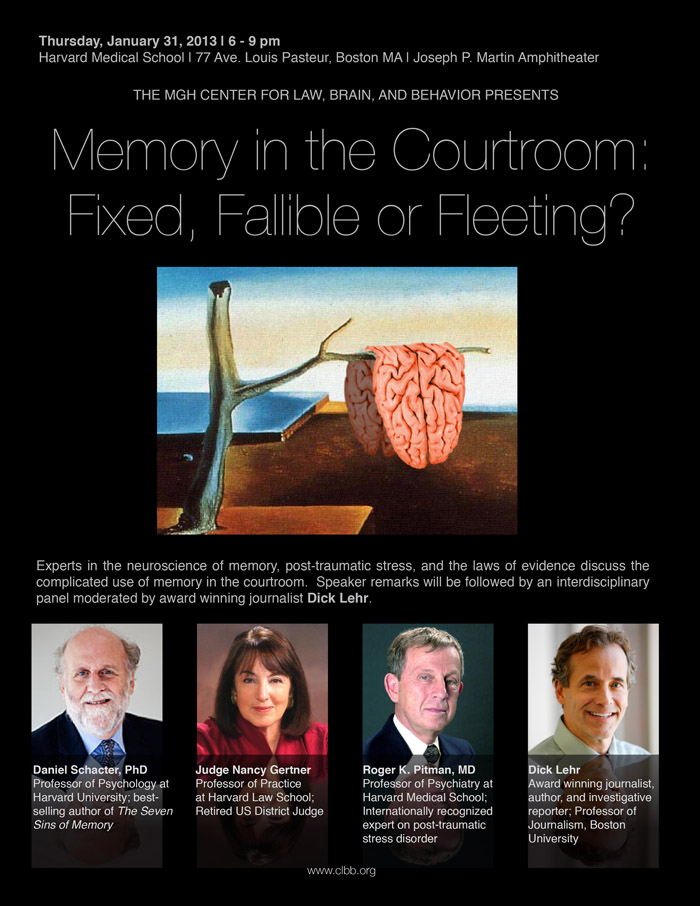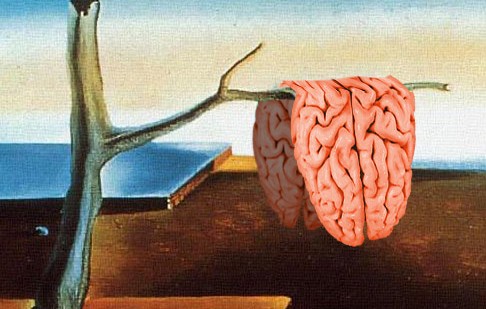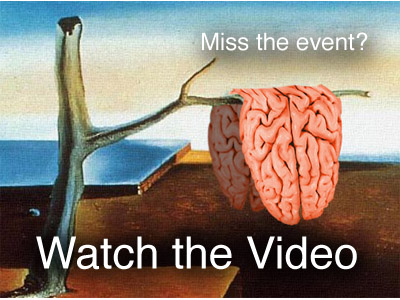
On January 31, 2013, CLBB hosted an evening event at Harvard Medical School on the changing science of memory and its implications for the court. Experts in the neuroscience of memory distortion, post-traumatic stress, and the laws of evidence discussed the complicated use of memory in the courtroom. Speakers included Harvard Professor of Psychology and best-selling author of The Seven Sins of Memory, Daniel Schacter, PhD; Harvard Medical School Professor and PTSD expert, Roger Pitman, MD; and Harvard Law School Professor and Retired US District Judge, Judge Nancy Gertner. Award winning investigative journalist Dick Lehr introduced the event with a story he had covered for the Globe about a wrongful conviction due to eye-witness misidentification. CLBB co-director Judith Edersheim moderated an interdisciplinary panel discussion following remarks from each speaker, followed by audience Q&A.
Watch the individual presentations and panel discussion below, or visit our “Memory in the Courtroom” channel at Vimeo.com.
Photographs of the event:
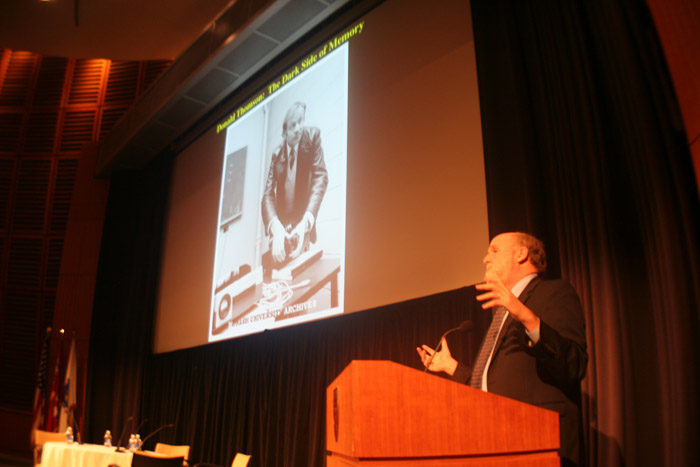
Dan Schacter discussed the distortion of memory, how the courts are beginning to take into account decades of psychological research, and how neuroscience may play a role in the future.
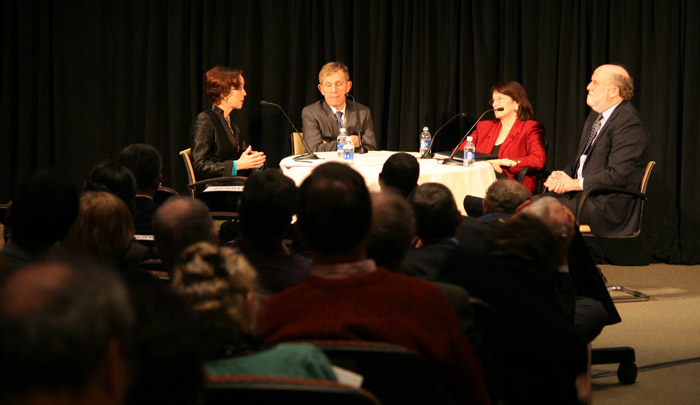
Judy Edersheim led off the panel discussion asking panelists to comment on the sense of “memory nihilism.”
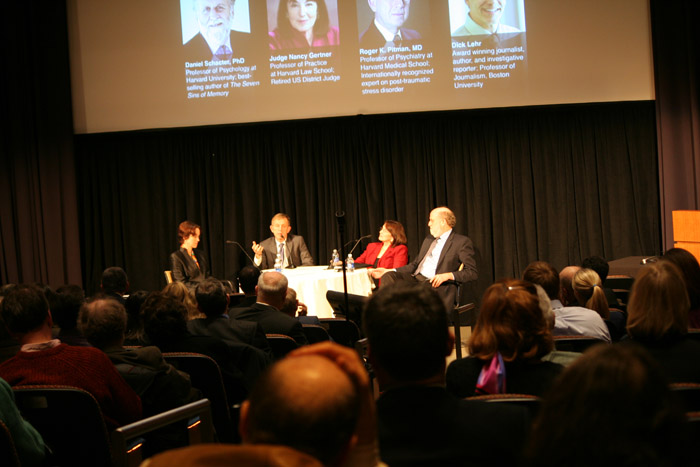
Dr. Pitman posed a question to the group: given how memories can change each time they are remembered, should the law make special efforts to obtain and then privilege witness statements obtained closer to the time of a crime?
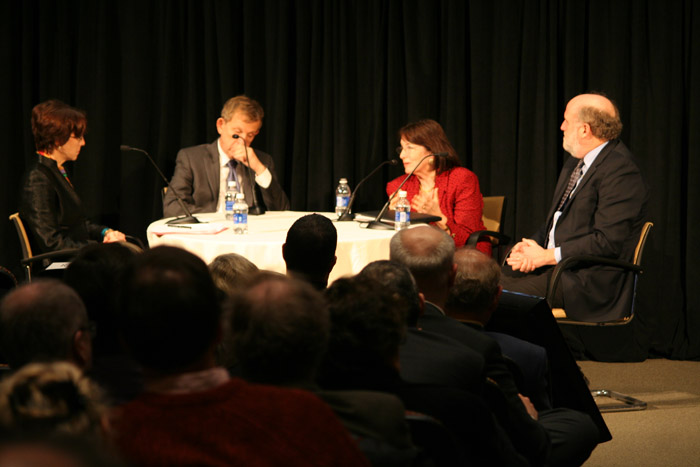
Judge Gertner pointed out the disconnect between the way science and the law approach issues of fact and evidence.
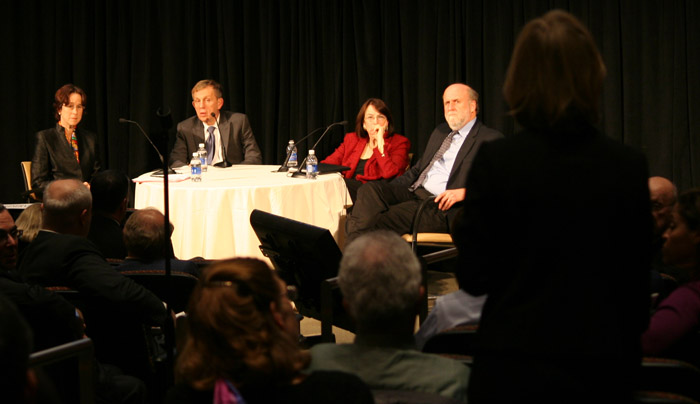
The panel fields a question from a defense attorney in the audience.
Read more about the fallibility of memory and its impact on the law.
